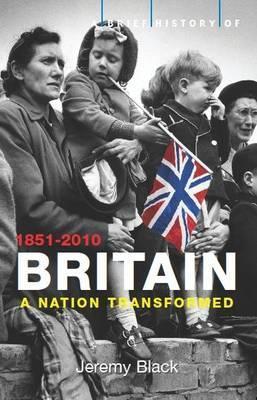


Books in series

A Brief History of Britain 1066-1485
2010

A Brief History of Britain 1485-1660
The Tudor and Stuart Dynasties
2009

A Brief History of Britain 1660-1851
2011

A Brief History of Britain 1851-2010
2010
Authors

Professor Jeremy Black MBE is an English historian and a Professor of History at the University of Exeter. He is a senior fellow at the Center for the Study of America and the West at the Foreign Policy Research Institute. He is the author of over 100 books, principally but not exclusively on 18th-century British politics and international relations, and has been described as "the most prolific historical scholar of our age". Black graduated from Queens' College, Cambridge with a starred first, and then undertook postgraduate work at St John's and Merton Colleges, Oxford. He taught at Durham University for 16 years from 1980 to 1996, firstly as a lecturer and then as a Professor. In 1996 he moved to Exeter University where he took up the post of Professor of History. He has lectured extensively in Australasia, Canada, Denmark, France, Germany, Italy and the U.S.. He was editor of Archives, the journal of the British Records Association, from 1989 to 2005. He has served on the Council of the British Records Association (1989–2005); the Council of the Royal Historical Society (1993–1996 and 1997–2000); and the Council of the List and Index Society (from 1997). He has sat on the editorial boards of History Today, International History Review, Journal of Military History, Media History and the Journal of the Royal United Services Institute (now the RUSI Journal). He is an advisory fellow of the Barsanti Military History Center at the University of North Texas. He was awarded an MBE in 2000 for services to stamp design, as advisor to the Royal Mail from 1997.

Professor Nicholas Vincent of the University of East Anglia has published a dozen books and some hundred articles on twelfth- and thirteenth-century history for both scholarly and popular audiences, including work on the English and European context of Magna Carta as well as Magna Carta: A Very Short Introduction (Oxford, 2012). When a 1297 issue of Magna Carta recently came up for auction, Professor Vincent was commissioned by Sotheby’s to write the catalogue. During his research he discovered two previously unidentified originals of Magna Carta. For the Magna Carta Project he has been searching archives across Britain, Ireland and France for the charters of King John. Also published under Nick Vincent.